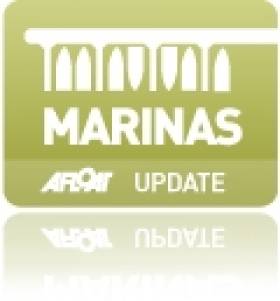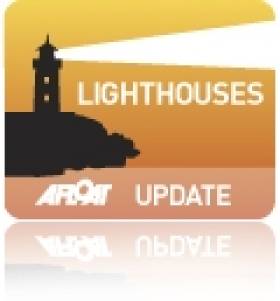Displaying items by tag: Poolbeg Yacht Boat Club & Marina (PYBC)
Fortunate Sun Joins Bikini Registered Motoryacht to List of Poolbeg Marina Visitors
#MotorYacht – The impressive 177 foot charter motoryacht M.Y. Fortunate Sun is paying a visit to Poolbeg Marina, Dublin Port and as previously reported she called last week to Cork City Marina, writes Jehan Ashmore.
Constructed with a steel-hull the 851 tonnes yacht has luxurious facilities for 10 guests accommodated in 7 suites and has a crew of 12 crew. The Poolbeg Yacht & Boat Club;s 100-berth marina has seen similar vessels moor along the outer pontoon, among them the 87 foot Bikini registered Cary Ali which could take 8 guests.
In addition the marina which caters for local yachts and pleasure craft also welcomes craft to attend events. Notably, the Old Gaffers Association's 50th Anniversary that was held in June.
Lecture: Lighthouse Memories of “Round Ireland Lighthouse Tour”
#LighthouseLecture- An illustrated lecture: 'Round Ireland Lighthouses Tour' by John Donnelly and Brian Maguire will be held next Wednesday (16th Jan.) at Poolbeg Yacht & Boat Club, Ringsend, in the heart of Dublin Port.
Donnelly and Maguire worked as Engineers for the Commissioners of Irish Lights (CIL). Between them they have seventy year's experience covering the period when the lighthouses were manned and their subsequent automation.
Their presentation will feature the history of the various lighthouses along with numerous photographs and personal anecdotal memories.
The lecture starting at 20.00hrs is part of Public Les Glenans Irish Winter Lecture Series and an entry fee of €5 will be in aid of the RNLI.
Lecture: "Pilots in the Bristol Channel"
in the Poolbeg Yacht Boat Club & Marina (PYBC). The next lecture is "Pilots in the Bristol Channel" by
Tom Cunliffe which is to held on Tuesday 23 November (1930 for 2000 hrs start).
the Sean Moore Road that connects the Merrion Strand Road (southbound) and the East-Link Toll Bridge
(northbound).
For further information on the DBOG lectures contact Tim Magennis on 087 2593113.
and on the PYBC Tel: (01) 668 9983 or logon to www.poolbegmarina.ie/
Lecture: "The Newfoundland Cruise"
in the Poolbeg Yacht Boat Club & Marina (PYBC). The next lecture is "The Newfoundland Cruise" by
Paddy Barry which is to held on Tuesday 2 November (1930 for 2000 hrs start).
For further information on the winter lecture series, contact Tim Magennis 087 2593113 For general information on the PYBC Tel: (01) 668 9983 or logon to www.poolbegmarina.ie/
































































